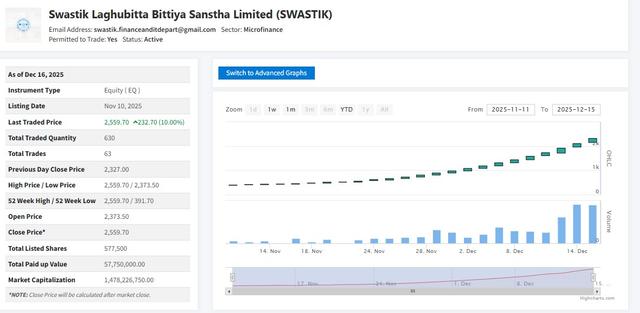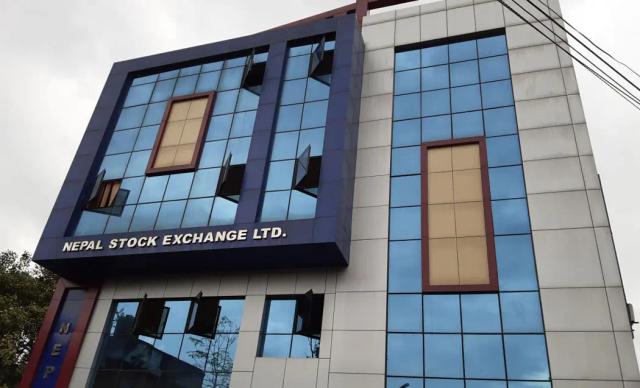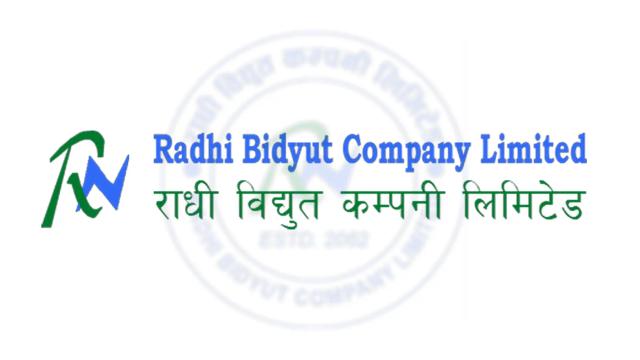RSDC Laghubitta: 35.99% Decline in Profit, Increase in Non-Performing Loans
Author
NEPSE trading

RSDC Laghubitta Bittiya Sanstha Limited (RSDC) has published its financial report for the first quarter of the fiscal year 2081. This report highlights several challenges faced by the company, particularly in terms of declining profitability and increasing non-performing loans (NPLs). The company’s net profit has significantly decreased compared to the same period last year. For the current quarter, RSDC reported a net profit of NPR 26.09 million, a 35.99% decline from the NPR 40.77 million earned in the same quarter of the previous year.
Net Profit Decline of 35.99%
Increase in Non-Performing Loans (NPLs) to 2.57%
5.92% Decline in Interest Income
Significant Increase in Impairment Charges
Drop in Earnings Per Share (EPS)
1. 35.99% Decline in Net Profit
RSDC Laghubitta's net profit for the first quarter of the current fiscal year stands at NPR 26.09 million, which is a steep decline of 35.99% compared to NPR 40.77 million in the same period last year. The significant decrease in profit is mainly attributed to a drop in interest income, an increase in non-performing loans, and a rise in impairment charges.
2. Increase in Non-Performing Loans (NPLs)
The company's non-performing loans (NPLs) rose from 1.49% to 2.57% during the review period. This increase in NPLs is a concerning issue for the company, as higher NPLs indicate worsening asset quality and can affect the financial stability of the institution in the long term. This rise in bad loans puts pressure on the company’s ability to manage its lending portfolio effectively.
3. 5.92% Decline in Interest Income
RSDC's net interest income, one of its main revenue sources, decreased by 5.92% from NPR 68.12 million to NPR 64.08 million. This decline in interest income has directly impacted the company's overall operating income, adding more pressure to its profitability. The decrease in interest income indicates that the company is generating less revenue from its core lending activities.
4. Significant Increase in Impairment Charges
Impairment charges surged significantly during the review period. Last year, the company had negative impairment charges of NPR 331,000, whereas this year, impairment charges have escalated to NPR 17.71 million. This increase in impairment charges has severely impacted the company's operating profit, which fell by 35.86% to NPR 37.28 million from NPR 58.13 million in the same period last year. The higher impairment charges indicate a deterioration in the quality of the company's loan portfolio.
5. Drop in Earnings Per Share (EPS)
RSDC's earnings per share (EPS) have also declined significantly. EPS dropped from NPR 18.76 in the same quarter last year to NPR 11.05 this year, representing a decrease of NPR 7.71. The decline in EPS reflects the company's reduced ability to generate profits for its shareholders, affecting its potential to distribute dividends in the future.
A Challenging Quarter
RSDC Laghubitta's first-quarter financial performance reveals a challenging scenario. The decline in interest income, rising non-performing loans, and increased impairment charges have all contributed to the sharp drop in profitability. To regain financial stability, the company must adopt strategies to improve its asset quality and boost interest income.
The institution will need to focus on risk management, enhancing loan performance, and reducing the rising trend of non-performing loans. Failure to address these issues could lead to further financial pressures in the upcoming quarters.
Strategic Reforms Required for Improvement
RSDC Laghubitta's financial performance in the first quarter reflects several areas of concern. The company must urgently implement strategic reforms to address the rising non-performing loans and the declining profitability. By focusing on risk management, increasing interest income, and controlling operational expenses, the company can aim for a recovery in its financial performance in the upcoming quarters.
If RSDC Laghubitta successfully adopts corrective measures, it can strengthen its long-term financial stability and improve its overall performance, ensuring better returns for shareholders in the future.



